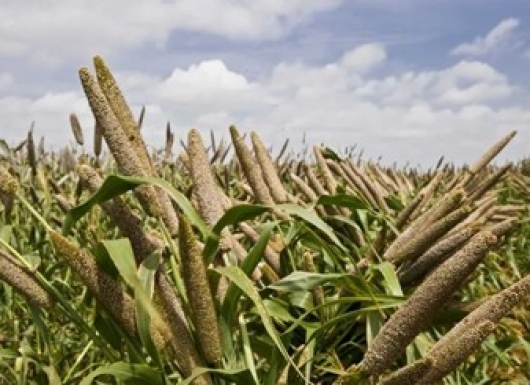Submitter: (ICRISAT)
This initiative focuses on evaluating the potential traditional crop varieties and landraces in African ecologies and elsewhere to identify those resilient to changing climate conditions. It not only responds to the food insecurity and vulnerability of agricultural systems in Africa and elsewhere due to climate change by introducing proven, locally adapted crops into mainstream farming but also gives local populations an opportunity to get back the seeds with proven nutritional value and the taste.

This approach systematically identifies promising traditional varieties and landraces with potential climate-resilient traits, leveraging both scientific and indigenous knowledge through multi-locational on-farm and on-station trials, detailed climate data integration, participatory variety selection (PVS) with farmers, developing or adapting variety release SOPs, strengthening community seed banks and supporting small-scale seed enterprises. Additionally, this approach advocates for legal frameworks for traditional varieties, designing participatory quality control mechanisms for seeds, implementing minimum support prices (MSPs).
One of the best examples is in Odisha state in India that has already launched significant initiative for mainstreaming the landraces of millets through their millet mission and pulses and cereals through other programmes. This program aims to promote millet cultivation and consumption, recognizing their nutritional value and climate resilience.
The Odisha Millet Mission (OMM) has involved in:
The Odisha Millet Mission (OMM) in India provides strong evidence of the positive impact of mainstreaming traditional varieties for climate resilience, addressing multiple challenges faced by farmers. Here's a summary of its impact:
The area under cultivation of ragi (finger millet) in OMM districts increased dramatically from 3,116 hectares to 43,993 hectares since the program began. Some evaluations show higher yield increases of landraces as compared to the modern varieties.
The government's commitment to procuring ragi at a Minimum Support Price (MSP) provided assured income and a stable market for farmers, reducing market risk for climate-resilient crops.
Millets are being re-integrated into local diets, moving beyond a "poor man's crop" stigma. Ragi is distributed under the Public Distribution System (PDS) to millions of beneficiaries, through Anganwadi centres, covering thousands of pre-school children. This addresses nutritional security, especially for vulnerable populations, and helps combat malnutrition.
Community Managed Seed Centers (CMSCs): Over 230 CMSCs have been established by WSHGs and FPOs to conserve local landraces and provide quality seeds at farmers' doorsteps, strengthening decentralized seed systems.
There's evidence of tribal farmers actively bringing back and exchanging around 35 varieties of millet and efforts to revive indigenous pigmented rice varieties in Koraput.
The Government of India and NITI Aayog have recognized OMM as one of the best models for millet promotion and encouraged other states to adopt it. Odisha was also recognized as the "Best State for Scaling up Odisha Millet Mission" in a national convention in 2022.
To replicate and scale this climate resilience initiative in Africa and elsewhere, drawing insights from OMM, a highly adaptable and localized approach is essential. This involves selecting region-specific traditional crops, fostering strong partnerships with national and international research bodies, governments, NGOs, and farmer organizations, and adapting policy frameworks to recognize and support traditional varieties.